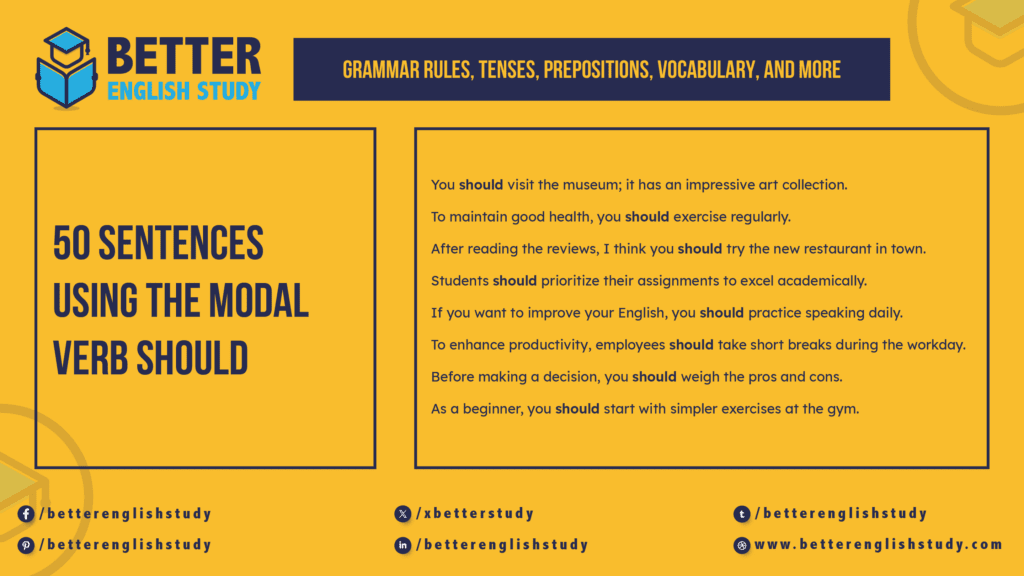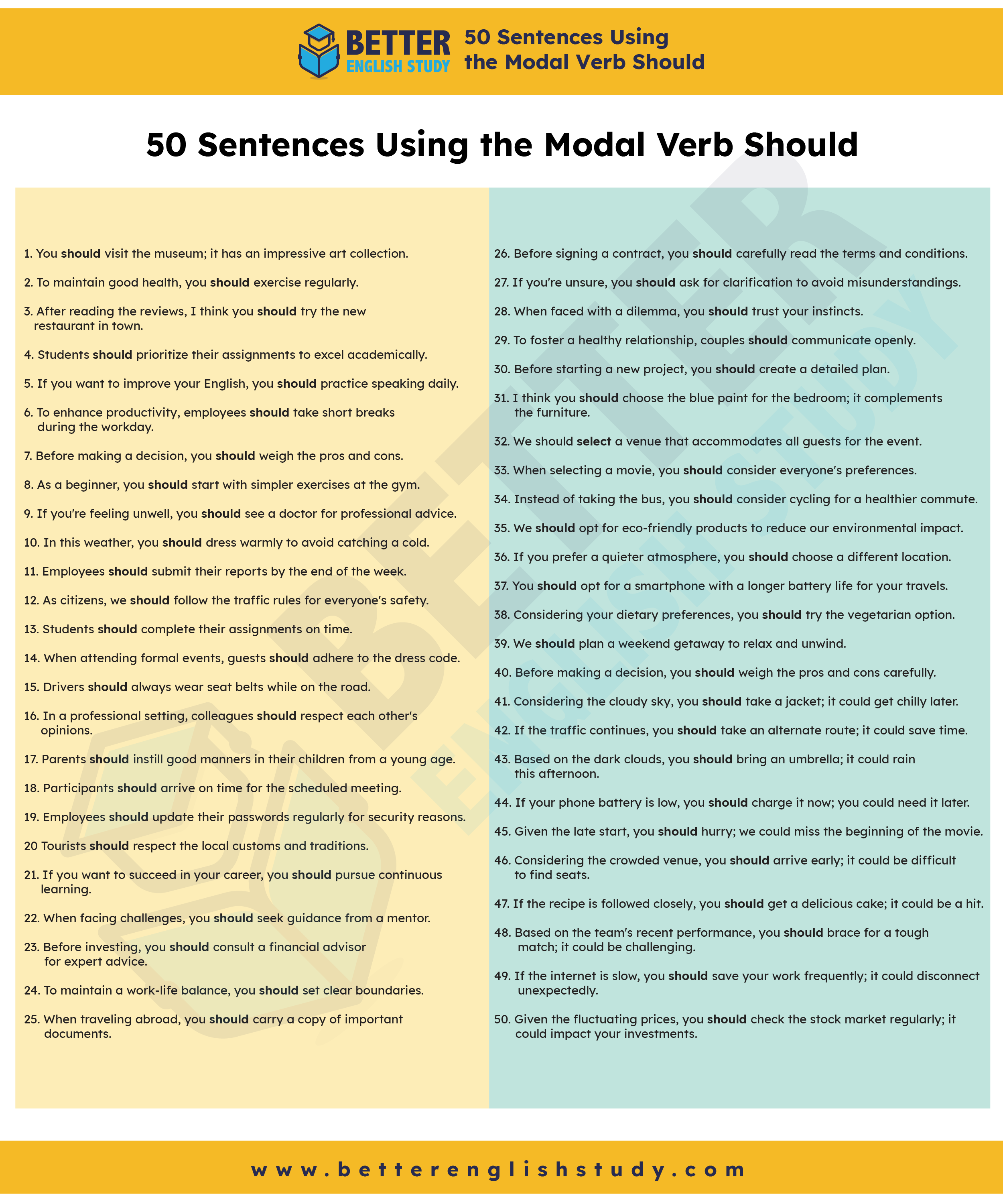
The modal verb “should” is a fundamental aspect of the English language, expressing recommendations, advice, obligations, preferences, and even uncertain predictions. Understanding how to use “should” appropriately is essential for effective communication.
In this article, we will delve into 50 example sentences that showcase the versatility of “should” across various contexts.
When to Use Should
Before delving into the sentences, let’s understand when to employ “should.” This versatile modal verb is often used to indicate recommendations, suggestions, advice, or obligations. Whether you’re offering guidance, expressing a preference, or outlining responsibilities, “should” plays a pivotal role in shaping effective communication.
Let’s read the examples for a better understanding.
1. Recommendations
- You should visit the museum; it has an impressive art collection.
- To maintain good health, you should exercise regularly.
- After reading the reviews, I think you should try the new restaurant in town.
- Students should prioritize their assignments to excel academically.
- If you want to improve your English, you should practice speaking daily.
- To enhance productivity, employees should take short breaks during the workday.
- Before making a decision, you should weigh the pros and cons.
- As a beginner, you should start with simpler exercises at the gym.
- If you’re feeling unwell, you should see a doctor for professional advice.
- In this weather, you should dress warmly to avoid catching a cold.
2. Obligations
- Employees should submit their reports by the end of the week.
- As citizens, we should follow the traffic rules for everyone’s safety.
- Students should complete their assignments on time.
- When attending formal events, guests should adhere to the dress code.
- Drivers should always wear seat belts while on the road.
- In a professional setting, colleagues should respect each other’s opinions.
- Parents should instill good manners in their children from a young age.
- Participants should arrive on time for the scheduled meeting.
- Employees should update their passwords regularly for security reasons.
- Tourists should respect the local customs and traditions.
3. Advice
- If you want to succeed in your career, you should pursue continuous learning.
- When facing challenges, you should seek guidance from a mentor.
- Before investing, you should consult a financial advisor for expert advice.
- To maintain a work-life balance, you should set clear boundaries.
- When traveling abroad, you should carry a copy of important documents.
- Before signing a contract, you should carefully read the terms and conditions.
- If you’re unsure, you should ask for clarification to avoid misunderstandings.
- When faced with a dilemma, you should trust your instincts.
- To foster a healthy relationship, couples should communicate openly.
- Before starting a new project, you should create a detailed plan.
4. Expressing Preferences
- I think you should choose the blue paint for the bedroom; it complements the furniture.
- We should select a venue that accommodates all guests for the event.
- When selecting a movie, you should consider everyone’s preferences.
- Instead of taking the bus, you should consider cycling for a healthier commute.
- We should opt for eco-friendly products to reduce our environmental impact.
- If you prefer a quieter atmosphere, you should choose a different location.
- You should opt for a smartphone with a longer battery life for your travels.
- Considering your dietary preferences, you should try the vegetarian option.
- We should plan a weekend getaway to relax and unwind.
- Before making a decision, you should weigh the pros and cons carefully.

5. Uncertain Prediction
- Considering the cloudy sky, you should take a jacket; it could get chilly later.
- If the traffic continues, you should take an alternate route; it could save time.
- Based on the dark clouds, you should bring an umbrella; it could rain this afternoon.
- If your phone battery is low, you should charge it now; you could need it later.
- Given the late start, you should hurry; we could miss the beginning of the movie.
- Considering the crowded venue, you should arrive early; it could be difficult to find seats.
- If the recipe is followed closely, you should get a delicious cake; it could be a hit.
- Based on the team’s recent performance, you should brace for a tough match; it could be challenging.
- If the internet is slow, you should save your work frequently; it could disconnect unexpectedly.
- Given the fluctuating prices, you should check the stock market regularly; it could impact your investments.
The “should” modal verb, with its ability to express recommendations, obligations, advice, preferences, and uncertain predictions, is a versatile linguistic tool. Mastering its usage enhances effective communication, allowing individuals to navigate a myriad of situations with finesse.
Integrating these examples into your language repertoire provides a comprehensive understanding of how “should” can be applied, enriching your ability to express thoughts, guide actions, and make informed decisions.
